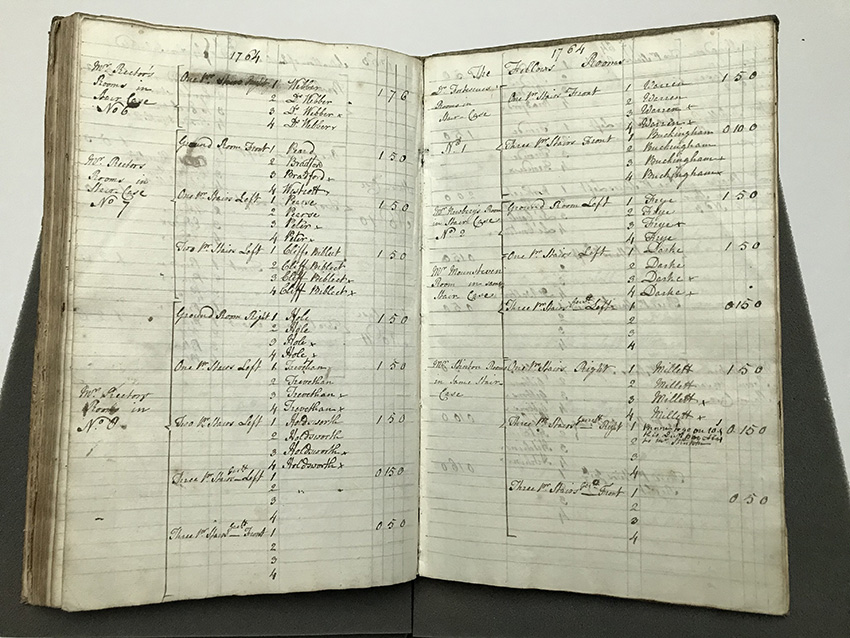Researching legacies of slavery at Exeter College
The recent death of George Floyd in America is just one of many instances in which the world has seen highlighted the institutional bias that detrimentally effects the lives of those of African and Minority Ethnic backgrounds.
Exeter College stands united with the Black Lives Matter movement and has recently embarked on a programme of events to encourage discussion and promote awareness of these important issues. On 20 October, Exeter hosted a roundtable event to highlight current research being conducted within the College which bears on matters of race and black history from a range of disciplinary perspectives.
Amongst those who spoke, Archives Assistant, Dr Isabel Robinson, made public for the first time her recent findings concerning Exeter College’s own institutional association with the Trans-Atlantic Slave Trade. Dr Robinson has taken the research lead on the College’s Legacies of Slavery Project, which seeks to establish whether the College, its undergraduates and Fellows participated within or benefited from aspects of coerced labour between the seventeenth and nineteenth centuries.
Whilst the project remains in its infancy, at this early stage Dr Robinson has been able to demonstrate that the College did at least have a partial role to play in the conduct and the promotion of slavery as a societal norm. So far, the project has established that 28 of its alumni had ties to the Colonial slave trade in some form or another and this, at least, provided a kind of financial benefit to the College through the payment of student tuition fees.
During the roundtable event, Dr Robinson identified a number of promising case studies, identifying areas of future research as well as highlighting some of the methodological issues that arise from conducting a study of this kind. Whilst the lives of those who benefitted most from the proceeds of enslavement have a cultural visibility, those of its victims are less well known and often, largely inaccessible. This disparity is borne out by the historical record and indeed, the College’s own archival holdings, which tend to favour the College’s prominent founders over those lesser-known individuals who may themselves have had a role to play in British Colonial activity.
It remains to be seen whether more concrete and direct links between Exeter College and the slave trade will emerge, but as a very minimum, it is clear that institutions such as Exeter have a responsibility to engage with their own historical past, however uncomfortable, to acknowledge how the College participated in a culture of slave-ownership, and to promote a culture of transparency in the modern age. For more information on the Legacies of Slavery Project please click here.

The College’s register of chambers, which is kept in the College archive, has been an invaluable resource during Dr Robinson’s research
